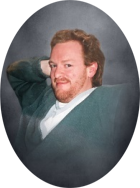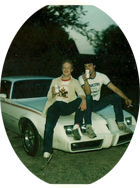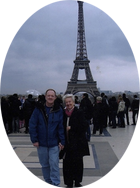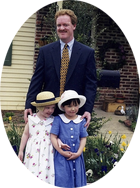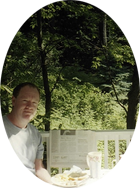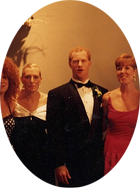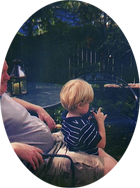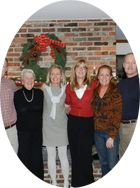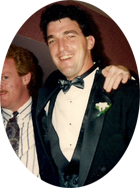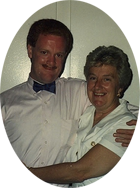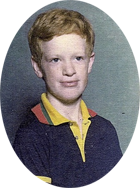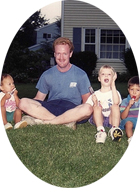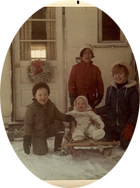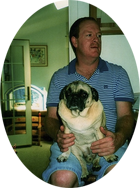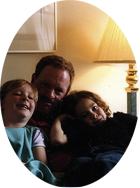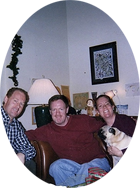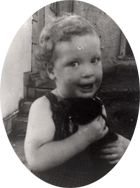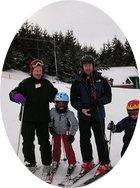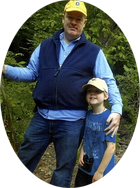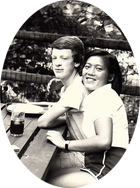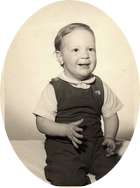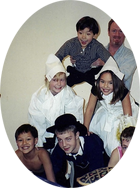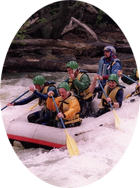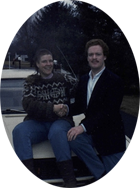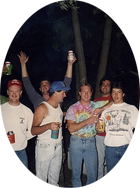Obituaries





















Search
Use the form above to find your loved one. You can search using the name of your loved one, or any family name for current or past services entrusted to our firm.
Click here to view all obituariesVarcoe-Thomas Funeral Home of Doylestown, Inc.
We're sorry but the candle you have selected is currenty in the process of being purchased or has just recently been purchased.
Please feel free to select another candle or check back in 15 minutes to see if the candle you have selected has been released for purchase.
Thank you.
We're sorry but there are no candles available for lighting.
Thank you.
You have already begun a candle purchase session. If you would like to continue with your current candle choice please click "Continue" otherwise please click "Select Another".
Thank you.
Dugery
Remembering Eamon Dugery
I am so grateful to be able to be a part of this service to remember and celebrate my friend Eamon’s life. Thank you to Joan, to Andrea, Michael, Jeanne, Julie, and Lani.
I met Eamon—Duggs—in 1980, at CB East. He sat behind me in Mr. Ritchie’s Social Studies class; he was 15, I was 16. He was a quick-witted impish Irish Catholic kid with bright red hair, a wicked sense of humor, and a wise-cracking irreverence toward authority. He understood politics, followed the news, and seemed older than he was. It was my fourth high school, my first year at CB East, and I was a mostly Irish Catholic vegetarian environmentalist reading Tom Wolfe and Hunter Thompson. I loved Abbie Hoffman, Jimmy Carter, Jimi Hendrix, and Gloria Steinem (not necessarily in that order). We became fast friends.
While Mr. Ritchie taught us social studies, Duggs schooled me on how the real world worked—candidates and policies the unions would support and why, how money influenced politics, and what it took to win an election. Fast forward to a few summers ago, after he got sick—we were sitting on his back porch, admiring the pepper and tomato plants in his little garden, and talking about the opioid crisis. He grew quiet, took a draw on his cigarette and said, “the solution to the opioid problem is J-O-B-S, period.” He spelled it out. It was spot on. Ned never lost sight of the fact that there are no private solutions—and he understood the toll that unemployment and lost opportunities could take on people and communities.
I should mention that, many years after we graduated from high school, Ned thought it would be a good idea for us to get in touch with our old teacher and take him to lunch, which we did. We had a glorious time, and I think Mr. Ritchie was delighted to see that, by some miracle, the two of us had become downright respectable citizens.
Duggs always knew how to fix stuff, and showed me how to change the spark plugs in my high school sweetheart’s beat up VW bug. During that first lesson, and after a string of expletives, he also helped me retrieve a plug when I dropped it into some hard to reach—and apparently very bad—cavity in the engine. We both loved going tubing on the Delaware River and, come summer, he always had the truck inner tubes at the ready, inflated and patched, with the all-important cooler lashed to its own “booze tube.” We had many fine cook outs with our high school buddies on the islands and shorelines of that beautiful river, slogging around in old sneakers (this was pre-Tevas) and smelling of Coppertone.
I recall one occasion in particular when Ned and I had tubed down the river, just the two of us, and were making our way to the road on foot to head back upriver to where we had left the car. For some reason, we had to wade across the canal which was, at that time, thick with green algae. I just remember us screaming and laughing, covered in mud, half-crazed with fear that at any moment we’d fall victim to the gargantuan snapping turtles that surely lived there (though we’d never seen one) and blaming each other loudly for our predicament.
Duggs was a loyal, generous, and supportive friend. There was the time in high school when things got bad at my house, there was fighting, and I was scared and didn’t know what to do. I called him and he was there in a flash, picking me up in his car. He didn’t press for details. But he took me away until things settled down and made sure I was OK. When I was in school and he was working, he’d insist on picking up the tab if we went for dinner. He fully supported my decisions, even when they took us down different paths. He was old-fashioned in the best way, always asking about my family, and even through his illness, staying in touch with my now 94 year old father.
After high school, I went away to college, later moving to San Francisco and then Boston. We always stayed in touch. Eamon loved art and music and good food, and he loved being outside. On his visits to Massachusetts we skied, biked, and, on one memorable day that he never let me forget, we did a day-long kayak tour of Essex and Crane’s Beach—in the rain. The coast was gorgeous and misty-magical that day, in a Gaelic way, and I knew he loved it, despite the good natured, “what the h_ll did you sign us up for, Hoffer,” jokes.
Eamon came out when, if I remember right, we were in our late 20s or early 30s. A few years later, my partner Rob and I met him and his then-boyfriend for dinner at a lovely little bistro in Philly. He was handsome in a navy suit jacket and button-down, the meal was wonderful, the conversation lively. He was beaming and I realized that my old friend was now fully himself and at ease.
Ned had a killer sense of humor that could be quite dry. Right around that time, he came to visit Rob and me and the three of us were watching a nature documentary about whales. The narrator had the British accent typical of nature documentaries. At one point the film showed male whales swimming and gliding closely together gleefully. “No one knows,” said the narrator, “why the male whales engage in this behavior.” “I think I know,” Ned dead-panned. We all just about died laughing.
In the years that followed, Eamon determined to live a clean and sober life, and dedicated himself to a recovery process. The choice took strength and courage, and he never wavered. He put himself on a path to heal, and he followed it, step by step, though it was at times hard. And he came home to himself.
Right around the time I left private practice to work for a non-profit environmental advocacy organization, Duggs started working to provide energy efficiency audits and upgrades to low income families as part of a program that was funded by the American Recovery and Reinvestment Act. He oversaw the work of a team and would call with war stories. He of course knew all the technical stuff, but what he really liked was that it was good work, part of a larger effort to help people save energy and money, and reduce pollution.
When he bought his home in Philly, he fixed it up and put in a little garden. He planted a tree. He fertilized and watered it and told me about its progress. I started raising goats, and when he came to see them, my big gruff friend in his plaid lumberjack shirt would let those little goats literally walk all over him, climbing up on his back and shoulders. He wanted pictures. He loved it, and they loved him. When we spoke, he’d always ask, “how many do ya have now?” And when I’d answer 5, 11, 17, 23 . . . the number increasing slightly each year, he’d laugh, telling me, “you’re out of your mind.”
Not long after Ned got sick, he decided to adopt Meatball, a slobbery love bomb of a bulldog. At first I wondered if it had been a good idea. But after I met Meaty at Ned’s place in the City and saw Ned with him, I realized that it was not only the right thing to do, it was perfect. Meaty’s heart was as big as Ned’s and his dog love irresistible. No wonder Ned was smitten. He loved taking Meaty to the doggie day spa. As I write this, I am wearing a pair of gray leggings that Meaty “distressed” with his claws during an enthusiastic greeting when I visited Ned and Joan this past summer. Of course, I’ll always keep them.
Duggs and I made our last trip to the Delaware River this past summer. He cussed as we struggled together with the walker over the gravel that led to the bridge over the canal, then across the bridge and onto the dirt tow path. He asked me how much farther; I told a little white lie. I wanted to get close enough so he could hear the river and smell it, and we did. We reached the closest picnic table and sat down, I closed my eyes and we sat there quietly, taking in all the sounds: the river, bees and insects buzzing in the trees around us, jet-ski engines, the sound of a radio playing Latin pop songs. We felt the sun on our bodies. We smelled the wet, earthy smell of the river bank below and the grass. We recalled our days of lazily tubing down the River. When we left, he suggested a restaurant for lunch in Lambertville, one I’d not been to before. Though he was blind by then, he flawlessly directed me there, turn by turn, until we arrived. We shared burrata, bread, peach salsa, watermelon feta salad and homemade potato chips. Afterward, we called Rob from the parking lot and gave him a report.
For nearly 40 years, Eamon and I shared one of those friendships that is as comfortable as a favorite old sweater. No matter how much time had passed, no matter what events had transpired, whenever we spoke or got together, we just picked things right up as if no time had passed at all. I can still hear his voice on my cell phone voicemail—always the same greeting, “Hey Mel. It’s Duggs calling. Give me a call.” In September, when I visited him at the nursing home, we sat close together, holding hands and not saying much. I am sure he felt my sadness. Even then, his instinct was to put me at ease. “Mel,” he told me, “I’ll save you a seat up in heaven.”
He loved me no matter what, and in that way, he was truly family.
-
Dear Lisa, Mike,& Duge... (read more)
-
So sorry for the loss... (read more)
-
Eamon worked for me in... (read more)
-
My deepest condolences... (read more)
-
Ned, We miss you so much.... (read more)
-
We are so sorry for your... (read more)
-
You were one of the funniest... (read more)
-
Spent many nights with... (read more)
-
We are honored to prov ...(read more)
-
I am so grateful to... (read more)
